Clubbing EHRs Religion
Clubbing, EHRs, and religion: not exactly a triplet of terms that is commonly grouped. But, I see it almost everywhere I look in EHRdom these days. Lemme ‘splain, Lucy…
Taking each as they were writ:
Clubbing
Not the ear-popping, soulless electronic drum beating, Ecstasy-riddled type of clubbing. And, not the too-cute-to-be-believed, little white baby seal murder trade tool, either.
The kind of clubbing to which I refer is the kind that involves people’s predilection to form into Us vs. Them units. We club. We group. We team up and then we team up against.
Little boys do it in tree houses with “No Girls Allowed” signs. Sorority sisters and frat fellows do it. Bloggers do it. Facebookers do it. Republicans and Democrats love to do it. Tea Partiers do it with gusto. Sports teams do it, thrive by doing it. Nations need to do it, especially during an Olympic year or time of war, any war.
Steve Jobs and Apple did/do it best, having turned clubbing into an art form.
Clubbing and EHRs
Almost every EHR I’ve ever come across has a strong element of clubbing. “Our system is the smartest” or “Our system is the most physician-friendly” or “Our system is designed with you in mind, more so than any other system out there” or “Our system will get you the ROI the others only talk about” – these are all themes which seem to have become almost genetically encoded in the current EHR mindset.
Whether they are free or cheap, minimally draining or bank-bustingly expensive, pretty much every EHR company I’ve ever come across thinks they have the best system. Most of them also trash talk the other EHR systems – the opposing “clubs” – almost as much as they up talk themselves, not unlike opposing sports teams. (Take your pick for an example; Browns/Steelers and Ohio State/Michigan are my favs.) Most EHRs try to build more than brand loyalty; they sell a lot of laced Kool-Aid.
EHRs club… a lot.
Clubbing and EHRs and Religion
It probably doesn’t take much ‘splaining to see the connection with religiosity and EHR clubbing. Few things have brought more people together than religion. And few things have brought more people together to assail other similarly grouped people with a differing opinion more than religion. Few things have caused more good and more harm, throughout the entire course of human history, than religion. (This likely being the reason John Lennon tried to “Imagine”.) Religion doesn’t have to lead to harm; it just often gets contorted and ends up there.
Religion is sort of the pinnacle of clubbing… well, aside from Apple.
Clubbing EHRs Religion
In the first sentence, I placed commas between these words though I didn’t in the title. There’s a good reason for that: discussing “clubbing”, “EHRs”, and “religion” is not the same as “clubbing EHRs religion”. (To be PC, Punctuationally Correct, I should have an apostrophe after the “s” in EHRs, but I liked the way it looked without it!)
Face it. No EHR does “EHRing” that much better than any other. Most every single one that I’ve seen does some thing or things really well, maybe even uniquely well. Most every single one that I’ve seen also does some thing or things (usually things, plural) really, really poorly. None of them are worth religiosity. Few are even worth a club.
“Imagine” there’s no EHR religion. Imagine an EHR company telling you the full truth. Imagine EHRs working to build the best solutions and foregoing the paranoia that someone else might copy what you’re doing. Imagine EHRs learning from each other and getting best of breed capabilities shared across the sandbox.
Imagine EHRs remembering that jacked up prices and humongo corporate facilities are a part of the skyrocketing healthcare cost crisis. Imagine EHRs all remembering that we’re in healthcare, that caring is an integral part of what we do. (Many, maybe most, EHRs were started with caring at their core, but it seems as if that has gotten a little lost, a little contorted, in development.)
Imagine buying an EHR made as simple as choosing which type of paper you prefer. All paper works, but some is smoother, some is heavier grade, and some is just fine for the price. The nice thing with paper, though, is you can actually know what you’re getting before you buy. (Plus, I’ve seen very little clubbing in the world of paper, except perhaps for Levenger.)
CEHRR
I’d like to club the clubbing, club the religion, right out of EHRs. “Clubbing EHRs’ Religion” (CEHRR) is a new club I’m starting. I’ve got “I’m a CEHRR” (pronounce it “kûr”, as in “cur”, as in mongrel) t-shirts, coffee cups, and buttons plus a cool little clubhouse. It’s better than any other club. It’s the best club ever! Wanna join?
From the trenches…
“I do not feel obliged to believe that the same God who has endowed us with sense, reason, and intellect has intended us to forgo their use.” – Galileo Galilei

Dr. Gregg Alexander, a grunt in the trenches pediatrician at Madison Pediatrics, is Chief Medical Officer for Health Nuts Media, directs the Pediatric Office of the Future exhibit for the American Academy of Pediatrics, and sits on the board of directors of the Ohio Health Information Partnership (OHIP).

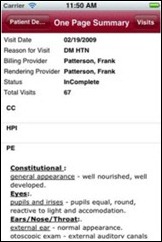
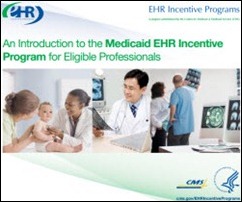
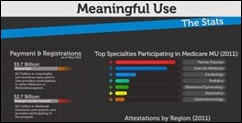



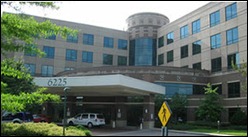


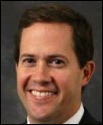
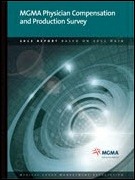




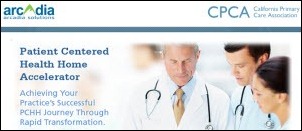


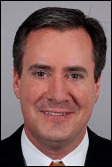
Re: Walmart Health: Just had a great dental visit this morning, which was preceded by helpful reminders from Epic, and…